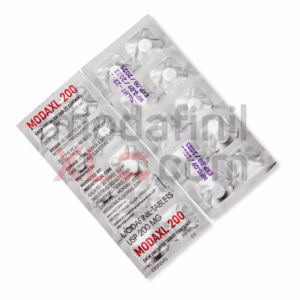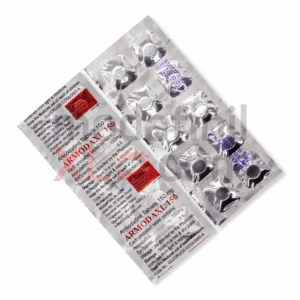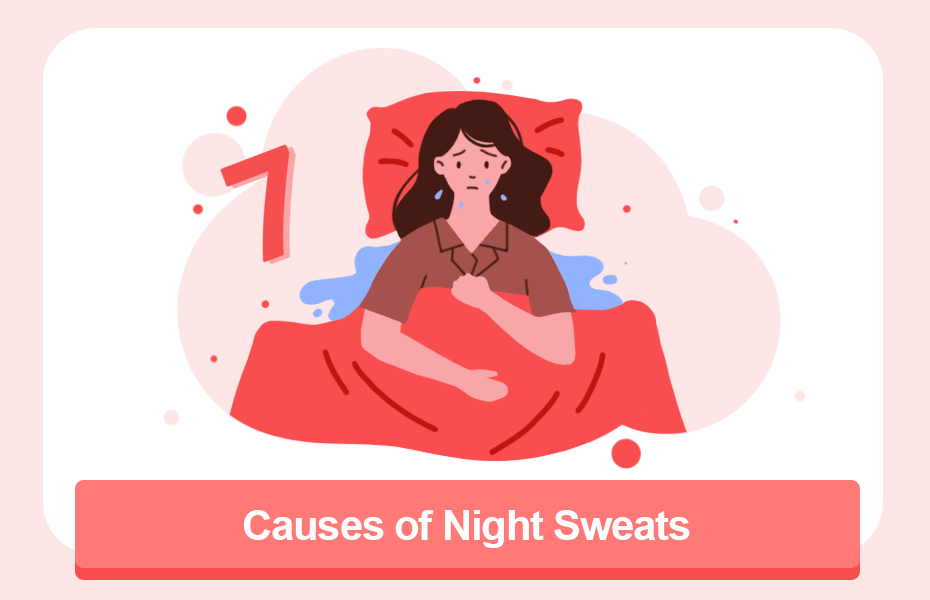7 Causes of Night Sweats
If you’re suffering from night sweats, we sympathize. While night sweats is usually a symptom and not the main problem, even an insignificant case is irritating at best. Whatever the cause, you can’t wait to get back to the restful sleep you’ve long forgotten.
What are night sweats? Everyone wakes up hot and sweaty occasionally. For all intents and purposes, actual night sweats is extreme nighttime perspiration that repeatedly leaves you, and maybe your bed, soaked when you awake. Your nervous system manages metabolism, temperature, digestion, blood circulation, and sleep as well as other involuntary functions that we take for granted. When your nervous system is healthy, or at least uninterrupted, these involuntary functions operate with no required action from you. If this system is negatively affected in some way, the results are immediately noticeable. When your body behaves erratically you experience involuntary actions that are uncomfortable and possibly detrimental, such as night sweats. Fortunately, not all episodes of night sweats are detrimental. In many cases there’s no reasons for concern. There may be no underlying medical issue. Still, night sweats are uncomfortable and you’d like to eliminate them completely.
What Causes Night Sweats in Women and Men?
Night sweats, an uncomfortable involuntary action, is associated with many greater disorders. It could be a symptom of any, but not limited to, the following:
- sleep disorders;
- stroke;
- drug addiction and alcoholism;
- emotional well-being;
- thyroid disease;
- sinusitis;
- medication side-effects;
- head injuries;
- dementia;
- iron, B-12, and other vitamin deficiencies;
- heat exhaustion;
- anemia;
- dehydration;
- aids/HIV;
- excessive caffeine usage or withdrawal;
- sleep deprivation;
- hay fever and other allergies;
- nearsightedness;
- hypoglycemia;
- eating disorders;
- hypertension;
- constipation;
- cancer;
- shingles;
- neurological disorders.
The best way to approach ridding yourself of this problem is to compare night sweats to other symptoms or issues you’re having as well. Determining the root of the problem will likely eliminate several other issues too. Do you have other symptoms?
Can Stress Cause It?
When we experience any type of anxiety it activates our body’s stress response. The effects of an activated stress response can impact psychological, physiological, and emotional changes. Increased heart rate, quickened breathing, and profound sweating are normal stress response reactions.
However, although the stress response function is our body’s ‘fight or flight’ mechanism is designed to protect us from danger, extreme scenarios can trigger effects that inhibit our ability to ward off danger.
In other words, if you are under a great deal of stress, or a consistent state of flight or fight, the body tells us in its own way to deal with the underlying issue. Plainly put, stress related events have a direct effect on your overall health and could be causing night sweats. It’s time to deal with the bigger, stress-causing issue.
Anxiety Like Reason of Night Sweating
Increased stress is a common cause of night mares. That fact tells us that stress factors do extend to sleep patterns. When elevated stress levels become anxiety, we know there is a bigger issue beneath the surface. If you’re experiencing anxiety that’s leading to night sweats, the effects should subside as your body recovers from the active stress response. In other words, you’ll return to your normal sleep patterns as personal issues are resolved.
Something as simple as out-of-stock items at the grocery store or long lines at the DMV can cause stress. Its life’s bigger issues that lead to anxieties that might result in night sweats. Stressful issues that can lead to anxiety might include divorce or the ending of a relationship, financial crisis, and hostile or uneasy work environments, death of a family member, family troubles, and physical, mental, and emotional abuse.
If you feel as if you’re undergoing extreme anxiety, particularly due to abuse or trauma, consult a physician.
Can Headaches Be Premise of NS?
Stress and anxiety can trigger night sweats, but they also contribute to headaches. That’s a given. Therefore, if you’re aware of frequent stress-related headaches, this might very well be an indication of what’s causing night sweats. That’s not to say that stress-related headaches are the cause, but if you’ve experienced, or are experiencing, high levels of stress followed by headaches, that’s a good lead towards discovering the cause and cure of your night sweat episodes.
Sleep Apnea and Night Sweats
Sleep apnea is common and can lead to other health conditions including diabetes, heart disease, depression, and high blood pressure. Obstructive sleep apnea, the most common form, is more frequent in obese people. However, sleep apnea can afflict anyone. Thus, since obese people are more likely to be diagnosed, those without weight issues are too often undiagnosed. In fact, of the 20 million Americans suffering from sleep apnea, more than 90% are undiagnosed.
So, how does sleep apnea relate to night sweats? The biggest factor is what happens to your body when you stop breathing. As your body is gasping for air, your fight or flight, or stress response, is triggered. In your sleep you are, in fact, fighting for air, panicking while doing so, and sweating more. Waking up soaked could be a sign of sleep apnea.
Night Sweating and Insomnia: Causes
Most of us wake up at different times throughout the night and then fall back asleep, that’s normal. You might not even remember. However, a perpetual state of excessive stress during the day might have an impact on your nights. If this is the case, rather than falling back asleep during sleep cycles as is normal to do, your heightened state of anxiety during the day is prohibiting you from falling back to sleep. Thus, your increased stress is generating adrenaline causing your heart to pound harder and your breath to quicken. That same stress is then inhibiting you from acquiring deep sleep, and, you guessed it, perspire more.
Tiredness – Reason of NS
Insomnia leads to being tired which then circles back to increased stress keeping your stress response, or fight or flight mechanism, engaged. Understandably, the cycle seems to never end. As your stress increases, so too does your tiredness, which could very well be the source of your night sweats.
Try lowering your body temperature, or cooling off, before trying to fall asleep. Take a cold shower, grab a cold drink, and change into lighter sleepwear. Any of these suggestions could do the trick but if you’re experiencing night sweats caused by chronic fatigue, the problem could be an infection or bigger disorder. If the night sweats are not easily explained, see your doctor to rule out serious possibilities.
Depression
Depression and anxiety are similar. That is to say that they are brought about by similar life or physiological situations. Furthermore, medications prescribed for depression have side-effects that could be causing night sweats. If you’re waking up drenched and have a history of depression, you may need medication or adjustments in your current prescriptions.
How to Stop Sweats at Night?
In most cases, sweating at night isn’t the problem but rather a symptom of the problem. Since there are a number of possible causes, the best approach is to consider any personal scenarios that might contribute. Here are a few possible ways to prevent episodes.
| Possible Causes | Reason | Solutions |
| Medications | Different people may have different reactions to medications, including over-the-counter medicines and vitamin supplements. | Consult your physician if you suspect that any prescriptions, or over-the-counter medications, are contributing to night sweats. Your doctor can help determine other options. |
| Late meals | Most of us have experienced headaches from hunger or low blood sugar. It makes sense that eating habits can be a contributing factor to night sweats, especially late meals or spicy foods. | Schedule mealtimes, especially heavier meals, earlier in the day. Allow your body plenty of time to digest food. Other solutions would be to decrease or eliminate spicy ingredients if this is a factor. |
| Low fluid intake | Your body requires a certain amount of water on a daily basis. Dehydration can contribute to a number of health issues including night sweats. | Whether low fluid intake is the cause or result of night sweats, your body requires those replenished fluids to be replaced. There are varying opinions, but it’s believed that eight 8oz glasses of water every day or half your weight is a good place to start. (E.g. if you weigh 150lb, you should consume 75 oz. of water daily.) |
| Poor exercise habits | Exercise is excellent way to increase circulation, reduce stress, and the endorphins released during will encourage healing, from minor and major ailments, as well. | Create and maintain a regular exercise schedule. If health is a factor, consult your physician for appropriate activities. |
| Sleep deprivation | Healthy sleep habits are imperative to good health so this could be a contributing factor to night sweats. Your body needs time to recover from even minor physical activity. | Make sleep a priority. In fact, schedule at least 7-8 hours of sleep every night. Furthermore, it’s a scientific fact that the brain also needs sleep to improve cognitive func |
Relief from Night Sweats and Better Sleep Awaits
If you’re suffering from night sweats, we sympathize. While night sweats is usually a symptom and not the main problem, even an insignificant case is irritating at best. Whatever the cause, you can’t wait to get back to the restful sleep you’ve long forgotten. If your situation is minor, a doctor or pharmacist will be able to recommend natural remedies for night sweats and insomnia.
Your first step on the road back to better sleep is to pinpoint the cause. Second, a few lifestyle changes, minor or major in some cases, may be in order. Reduce your alcohol intake. Eliminate disagreeable foods. Initiate healthy exercise, nutrition, and sleep habits. Finally, if night sweats persist or if your situation is extreme, consult a physician to discuss medicinal side-effects or to assess a greater issue that may be the cause.















